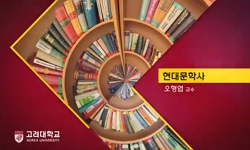According to statistics from the Korean Immigration Service, the number of foreign women who migrate to South Korea for marriage purposes has been increasing every year. Married Migrant Women settling in Korea have children, start families, and establ...
http://chineseinput.net/에서 pinyin(병음)방식으로 중국어를 변환할 수 있습니다.
변환된 중국어를 복사하여 사용하시면 됩니다.
- 中文 을 입력하시려면 zhongwen을 입력하시고 space를누르시면됩니다.
- 北京 을 입력하시려면 beijing을 입력하시고 space를 누르시면 됩니다.
결혼이주여성을 위한 비판적 문식성에 기반한 한국문화 교육 연구-현대시와 하브루타 활용을 중심으로- = Korean Cultural Education Based on Critical Literacy for Married Migrant Women-The Use of modern Poetry and Havruta Method-
한글로보기https://www.riss.kr/link?id=A107984329
- 저자
- 발행기관
- 학술지명
- 권호사항
-
발행연도
2021
-
작성언어
-
- 주제어
-
KDC
700
-
자료형태
학술저널
-
수록면
453-501(49쪽)
- 제공처
-
0
상세조회 -
0
다운로드
부가정보
다국어 초록 (Multilingual Abstract)
According to statistics from the Korean Immigration Service, the number of foreign women who migrate to South Korea for marriage purposes has been increasing every year. Married Migrant Women settling in Korea have children, start families, and establish themselves as full members of Korean society. However, despite their important role in society, they face harsh realities such as language and cultural barriers, which has emerged as a serious social problem. Such problems can also be found in cultural education for immigrant women through marriage, which is, in many cases, based on “assimilationism.” This study first investigates the problems in the current Korean cultural education and sheds light on the reasons and significance of paying attention to critical literacy in such education. This study then uses modern poetry as educational material to enhance critical literacy of these women, presents a practical strategy based on the Havruta method that involves a problem-raising process, and applies the strategy to the actual field of education. The results indicate that the immigrant women are fully aware of the irrationalities, differences, and discrimination that exist both inside and outside their home, and that they constantly reflect on their own culture and themselves, which points to the possibility that the women choose silence simply due to factors such as language barriers and external pressures. That Married Migrant Women establish themselves as members of Korean society does not mean that they have to give up their cultural identities to assimilate into Korean culture. Since forcing them to accept Korean culture unconditionally can act as a cause of family discord and dissolution, Korean cultural education should not only help them understand the culture of the country they have naturalized to, but also allow them to embrace Korean culture with a critical eye on their lives through comparison with their own culture.
동일학술지(권/호) 다른 논문
-
- 서울대학교 국어교육과
- 강보유 ( Jiang Baoyou )
- 2021
-
중국(中國) 북경대학도서관(北京大學圖書館) 고적분관(古籍分館) 소장(所藏) 한글 문헌(文獻)에 대(對)한 고찰(考察)
- 서울대학교 국어교육과
- 왕단 ( Wang Dan )
- 2021
-
- 서울대학교 국어교육과
- 이삼형 ( Lee Samhyeong )
- 2021
-
- 서울대학교 국어교육과
- 김종철 ( Kim Jongcheol )
- 2021




 KISS
KISS






